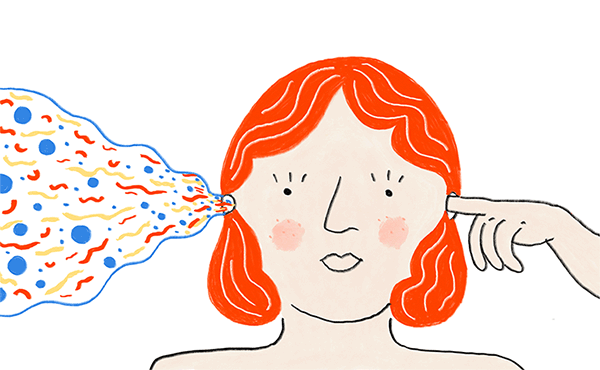LEARNING THROUGH PLAY

Play is one of the main ways in which children learn and develop. Children's play unlocks their creativity and imagination, and develops reading, thinking, and problem solving skills as well as further develops motor skills. We encourage learning through play as it allows children at a very early age to engage and interact in the world around them, and develop who they are. Because it's fun, children often become very absorbed in what they are doing.
PROJECT/ PROBLEM/ INQUIRY-BASED LEARNING

In this 21st century world, students need to experience beyond textbook problems, and instead experience and investigate real-world topics worthy of their attention and effort. Real-world experiences can be divided into different learning methods such as listed below:-
Project-based learning: involves children carrying out a project that ends up with a concrete result of some kind.
Problem-based learning: teachers guide children in developing solutions to real-world problems.
Inquiry-based learning: children generate their own questions according to their curiosities or interests, which they then investigate.
OUTDOOR PLAY

Children are naturally drawn to playing outside. Venturing outdoors allows them to explore their environment, develop muscle strength and coordination, gain self-confidence, and have fun getting dirty (once in a while). A fun weekly activity that all kids will love. We won’t forget the sunscreens and mosquito repellents!
LANGUAGE ARTS

Our language art class focuses on a combination of 3 main components: speaking (linguistic/ communication skills), reading, and writing. We emphasise on creative and critical thinking to help children develop their higher order thinking skills, cognitive skills and imagination which goes beyond basic observation of fact and memorization. We create students that are evaluative, creative and innovative.
PHONICS

Jolly Phonics
This programme is for children (age 2 years old and above) to start reading and writing at an early age. We teach the letter sounds in an enjoyable, multisensory way and enables children to use them to read and write words confidently.
Oxford Songbirds Phonics
With our complete phonics programme (part of the popular Oxford Reading), our reading classes are always effective and fun. The 36 books in this collection are especially designed to help ease young children through the process of learning to read with books levelled to Oxford Levels and Book Banded for easy classroom use.
NUMERACY

Have children start learning numeracy and math skills early. Introducing math to children from an early age helps to develop their understanding of all elements of problem solving and reasoning in a broad range of contexts. Our lessons happen through everyday play and activities that helps your little learners explore the exciting world of numbers.
SPEECH AND DRAMA

Have children express themselves better, build stronger vocabulary and install confidence and eloquence through our speech and drama class. Activities such as speech and voice control, group work, individual work and working in a team are vital aspects to develop children to be articulate and fluent in their speech while carrying themselves confidently in public.
MUSIC AND MOVEMENT

Have children engage in singing, playing rhythm instruments, listening to music, poems and nursery rhymes through various music and movement tools and instruments to have children of all ages express themselves through music. Create and experience their own music, songs and dances are ways to support the development of our children.
PHONICS FLASHCARDS

Words and pictorial flashcards are a fun and playful way to learn reading. Rather than mere memorization, flashcards engages active recall, which is remembering the concept from scratch and through memory connections. The benefits of flashcards is that they make it easy to maximize the benefits of repetition and to improve children's overall reading skills.
TAILORED INSTRUCTION

Differentiated instruction responsive to each student’s needs focuses on whom we teach, where we teach, and how we teach. Teachers will focus on processes and procedures to ensure effective learning for varied learners. Quality curriculum paired with quality instruction create powerful knowledge that works for every student.
CRITICAL THINKING

In a world where arguments and counterarguments flourish, individuals should be equipped with critical thinking or systematic evaluation of arguments of others. They need to make sense of information, analyze, compare, contrast, make inferences, and generate higher order thinking skills. We guide and encourage our children through open-ended questions to think beyond the box, navigate problems, make their own decisions, and follow through on goals.
LEARNING WITH TECHNOLOGY

Technology has revolutionised the way we think, work, and play. When integrated into the curriculum, it revolutionizes the learning process. Aside form preparing our children for the future, technology in the classroom makes learning more fun, increasing students interest in learning. Students will be able to learn at their own pace and style, aligned with tailored instruction.
COOPERATIVE LEARNING

According to research, when students learn to work with one another, their individual achievement increases as compared to students who only work alone, as cooperative learning creates more opportunities for critical thinking. We encourage active participation through class discussions as they prompt students to listen to another’s point of view and adjust their thinking accordingly. This involves high-level thinking skills, such as analysis and evaluation skills; it presents and promotes deeper understanding, beyond simple recall skills. These skills are critical to successful teamwork in school and the working world.
MEMORY

Children use working memory to learn and follow directions. Working memory is how we hold on to and work with information stored in short-term memory. We incorporate activities to ensure working-memory boosters is built into your child’s daily life. Visualizing thoughts together using stories, circle time card games and other fun activities can help improve a child’s working memory.


